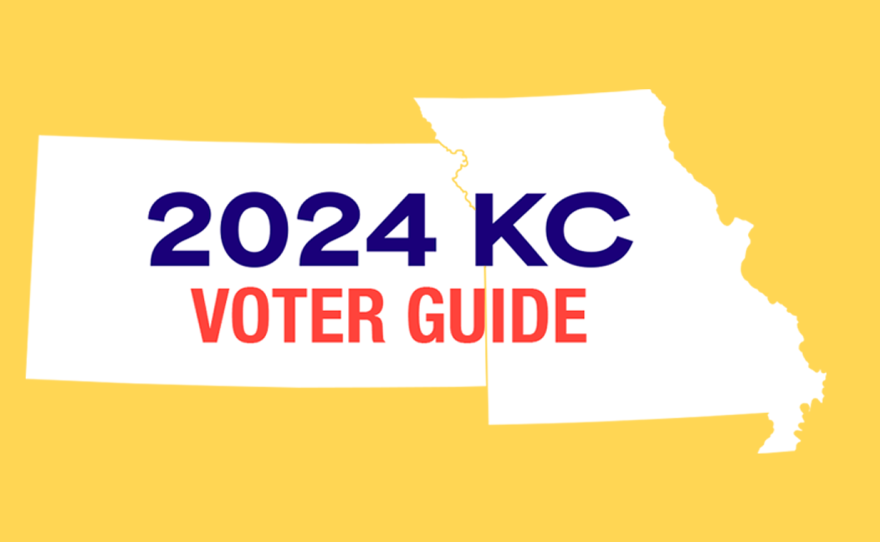After years of legislative inaction, popular sports betting apps FanDuel and DraftKings are funding a ballot initiative to allow for Missourians to place bets on their phones, in casinos and at sporting venues.
They are facing well-funded opposition: Missourians Against the Deceptive Online Gambling Amendment. This group says the measure known as Amendment 2 won’t actually provide much money to help education as proponents contend.
Brooke Foster, a spokesperson for the anti-amendment group, said on the latest episode of the Politically Speaking Hour on St. Louis on the Air that the measure will instead enrich the two sports betting apps funding the “yes” side of the initiative.
“We are opposed to Amendment 2 because we think that it is fundamentally dishonest,” Foster said. “The reason why I say that is they're making promises for Missouri education. They're promising to fund in the millions of dollars, and even the auditor's own fiscal note shows that just isn't true.”
Foster is referring to state Auditor Scott Fitzpatrick’s fiscal analysis note that’s attached to the ballot summary of the initiative. It estimates that the proposal could raise anywhere from nothing to $28.9 million. The zero dollar figure stems from the possibility that sports betting companies could deduct items like promotional or free play.
“And after DraftKings and FanDuel can take all of these deductions, there's a very real chance that schools could be left with zero,” Foster said.
During a press call last month, Chuck Hatfield, an attorney for the pro-Amendment 2 group Winning for Missouri Education, said the measure limits the amount of promotion credits sports betting companies can deduct. He also noted FanDuel or DraftKings often offer free or promotional play as a way to get people to bet more often.
“There are all kinds of things that are done to encourage additional play,” Hatfield said. “And so these promotional credits are an effort to increase gross revenue. That's what they're doing by offering the promotional credits. They're not in the business to lose money.”
Foster said, though, that sports betting companies could rake in several billion dollars after Amendment 2 passes — which could make it take awhile to hit the deduction cap.
“I would have a lot more respect for the opposition's argument if they just said: ‘You know what? We want to expand sports gambling in Missouri. Other states have it. Why don't we?’ It's the fact that they're tying it to education funding. Putting out advertisements with teachers and classrooms. As a parent with students in Missouri public schools, it just rings disingenuous to me.”
Polling on the issue is close
Polling by the Midwest Newsroom and Emerson College showed reluctance from respondents to legalize sports betting.
The poll showed that 39% of respondents thought legalizing sports betting was a bad thing. About 36% said it was a good thing, while 25% had no opinion.
“I think most people know someone in their life who maybe has an addiction to gambling or does it a little bit too much,” said Midwest Newsroom data journalist Daniel Wheaton. “Maybe it's one of those things where it's a personality trait kind of thing. And it kind of depends where you fall on that line of: ‘Are you cool with potentially risking it all or potentially winning it big?’”
Much of Missourians Against the Deceptive Online Gambling Amendment’s money comes from casinos in the state affiliated with Caesars. Foster said her group is “not sort of taking a moralistic stance or a values-based stance on gambling.”
“People are more than welcome to have their own viewpoints on that, and they certainly do,” Foster said. “I think that from a competitive business standpoint, we see states on all of our borders having legalized sports gambling. And so it does put Missouri at a competitive disadvantage. However, we think that voters should be a little more patient and not vote on something that will be enshrined into the constitution.”
Inaction in the Missouri General Assembly prompted sports betting proponents to use the initiative petition process. And there’s no guarantee that there will be a breakthrough in 2025, especially if the issue becomes intertwined with efforts to legalize video gaming terminals.
While Foster said she can’t predict what future legislators will do, she added that the possibility of General Assembly gridlock isn’t a good reason to vote for Amendment 2.
“Our argument here is less about what might happen in the future and just really, really cautioning Missourians to not vote yes on a measure that will enshrine something into the constitution that is a nonstarter for Missouri public education,” she said.
Proponents of Amendment 2 joined a previous edition of the show.
“St. Louis on the Air” brings you the stories of St. Louis and the people who live, work and create in our region. The show is produced by Miya Norfleet, Emily Woodbury, Danny Wicentowski, Elaine Cha and Alex Heuer. The audio engineer is Aaron Doerr and the production intern is Jada Jones.
Copyright 2024 St. Louis Public Radio






